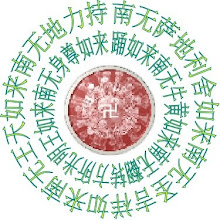China Malaysia Communique Establishing Diplomatic Relations
From Wikisource
Jump to: navigation, search
←Indexes: Historical documents
Joint Communique of the Government of the People's Republic of China and the Government of Malaysia
At the invitation of His Excellency Chou En-lai, Premier of the State Council of the People's Republic of China, His Excellency Tun Abdul Razak bin Datuk Hussein, Prime Minister of Malaysia, visited the People's Republic of China from May 28 to June 2, 1974. His Excellency Prime Minister Tun Abdul Razak was accompanied by representatives of political parties in the Government and government officials.
During his visit, Prime Minister Tun Abdul Razak called on Chairman Mao Tsetung and conveyed to him the best wishes of the Malaysian Government. They had a friendly and frank talk.
Premier Chou En-lai, Vice-Premier Li Hsien-nien and Prime Minister Tun Abdul Razak had wide-ranging talks on various subject matters of bilateral, regional and international nature. These talks were held in a frank and friendly atmosphere. The two Prime Ministers agree that in recent years the situation in Asia has undergone deep changes favorable to the people of all countries. It is in conformity with the interests of the peoples of China and Malaysia to normalize the relations between the two countries. To this end, the two Prime Ministers have decided to announce the normalization of relations between their two countries by issuing this Joint Communique.
1. The Government of the People's Republic of China and the Government of Malaysia, with a view to promoting the traditional friendship of the two peoples, have decided upon mutual recognition and the establishment of diplomatic relations as from the date this Communique is published.
2. The two Governments hold that although the social systems of the People's Republic of China and Malaysia are different, this should not constitute an obstacle to the two Governments and peoples in establishing and developing peaceful and friendly relations between the two countries on the basis of the principles of mutual respect for sovereignty and territorial integrity, mutual non-aggression, non-interference in each other's internal affairs, equality and mutual benefit, and peaceful co-existence. The two Governments consider all foreign aggression, interference, control and subversion to be impermissible. They hold that the social system of a country should only be chosen and decided by its own people. They are opposed to any attempt by any country or group of countries to establish hegemony or create spheres of influence in any part of the world.
3. The Government of Malaysia recognizes the Government of the People's Republic of China as the sole legal government of China, and acknowledges the position of the Chinese Government that Taiwan is an inalienable part of the territory of the People's Republic of China. The Malaysian Government decides to close down its consulate in Taipei.
4. The Government of the People's Republic of China recognizes the Government of Malaysia and respects the independence and sovereignty of Malaysia.
5. The Government of the People's Republic of China takes note of the fact that Malaysia is a multi-racial country with peoples of Malay, Chinese and other ethnic origins. Both the Government of the People's Republic of China and the Government of Malaysia declare that they do not recognize dual nationality. Proceeding from this principle, the Chinese Government considers anyone of Chinese origin who has taken up of his own will or acquired Malaysian nationality as automatically forfeiting Chinese nationality. As for those residents who retain Chinese nationality of their own will, the Chinese Government, acting in accordance with its consistent policy, will enjoin them to abide by the law of the Government of Malaysia, respect the customs and habits of the people there and live in amity with them. And their proper rights and interests will be protected by the Government of China and respected by the Government of Malaysia.
6. Premier Chou En-lai and Prime Minister Tun Abdul Razak agree that the two Governments, in conformity with international practice, will provide each other with all necessary assistance for the establishment and performance of the functions of embassies in their respective capitals, and that ambassadors will be exchanged as soon as practicable.
CHOU EN-LAI Premier of the State Council of the People's Republic of China.
TUN ABDUL RAZAK BIN DATUK HUSSEIN Prime Minister of Malaysia.
Peking, May 31,1974.
This work is in the public domain in the U.S. because it is an edict of a government, local or foreign. See § 206.01 of the Compendium II: Copyright Office Practices. Such documents include "judicial opinions, administrative rulings, legislative enactments, public ordinances, and similar official legal documents."
These do not include works of the Organization of American States, United Nations, or any of the UN specialized agencies. See Compendium II § 206.03 and 17 U.S.C. 104(b)(5).






马中建交,抹煞了其他华人的意愿,因此不足以称为代表全体中国人
回复删除中共政权不会插手捍卫华侨的权益,因为此协议约束了它,如是与印尼亦一般,说起来,中共的合法性有待商权的必要,一切的条约必须经过合法的中国君主恩准才算合法
回复删除关于合法性,只要有天人合一,公正公平,名正言顺,能顾及全体人民的,能有返本归元理序的正义和制度,可称合法
回复删除错认马尾当马头
回复删除错认马头当马主
如是误认站错队
落在马棚被人骑